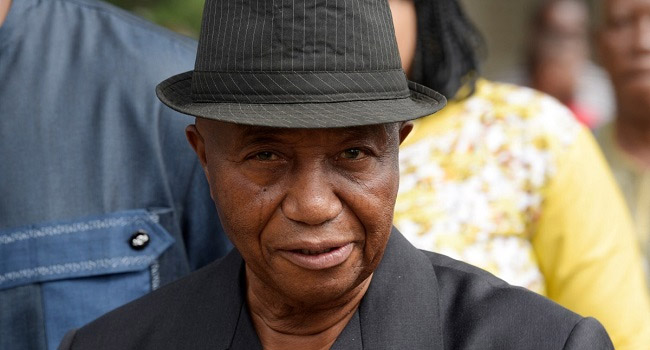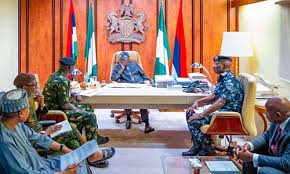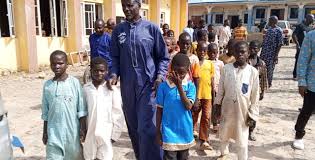
Liberia’s President Boakai Suffers Heat Exhaustion After Taking Oath
The 79-year-old leader's brief period of exhaustion brought on by the high temperatures on Monday marked the inauguration of Liberia's new president Joseph Boakai, who replaces former football star George Weah, the secretary general of his party told AFP.
Boakai had to stop and take a seat to complete his speech in front of the parliament in Monrovia, where foreign delegations and local officials had gathered. His age and health are hot topics in the West African nation.
Amos Tweh, the secretary general of Boakai's party, told AFP that the president was advised by his doctors to return home as a result of the brief interruption in his speech, which was caused by heat exhaustion.
"The president was not brought to a medical facility. The president is doing well and everything went according to plan. He said, "The president has returned to his regular presidential responsibilities.
In November, Boakai, a seasoned politician, defeated Weah, a past winner of the Ballon d'Or, with 50.64 percent of the vote to 49.36 percent.
In his inaugural speech, Boakai emphasised the need to restore the nation's dilapidated infrastructure, enhance universal access to basic services, and guarantee that every Liberian has an equal opportunity at success.
There are difficult times and dysfunction in the world. Both high and low places exhibit corruption. And (it's) in these and comparable circumstances that we have stepped in to help," Boakai said, promising to protect the law.
Ghanaian President Nana Akufo-Addo and US Ambassador to the UN Linda Thomas-Greenfield attended the investiture in parliament.
Boakai, who comes with forty years of political experience, will lead the oldest republic in Africa for the next six years.
Under Africa's first elected female head of state, Ellen Johnson Sirleaf, he served as vice president from 2006 to 2018, when Weah decisively defeated him in the 2017 election.
In a region where Mali, Burkina Faso, Guinea, and Niger have all experienced military takeovers in recent years, the election in November was peaceful.
After years of consecutive civil wars and an Ebola outbreak, the five million-person tiny country has been beset by corruption, extreme poverty, and a deficient legal system.
The issue of impunity for crimes committed during those civil wars remains unresolved.





